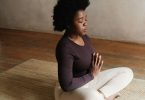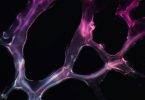In the fabric of our society, people with diverse threads of identity deserve special care and attention. The world of Black LGBTQ individuals with autism, special care and accommodations are often needed. Imagine navigating the world at the confluence of these identities, where each of the them not only exposes you to stigmatization but also fuels the complexity of life experience. Black LGBTQ individuals with autism have faced discrimination in workplaces, homes, places of worship, and the society in general. The group is marginalized in our society and find hard time to explain their situation. They are neglected when accessing healthcare services, calling for the need to create safe and inclusive spaces for them to interact and explore themselves. Achieving this space is a journey that’s rich and vibrant, yet fraught with challenges that demand not just recognition but active support and understanding. As a united community our responsibility is to create a space that accommodates people of all characters and identity. Black LGBTQ individuals have been neglected in most communities due to their identity. They require special attention as people with disabilities regardless of their identity.
Navigating Intersectionality of identities
Black LGBTQ individuals with autism experience triple discrimination in the society. They are neglected for being Black especially in western countries and still have the stigma of being autistic, while identifying as LGBTQ. To them, intersectionality isn’t just a buzzword; it’s the reality of navigating daily life with identities that society often marginalizes. Imagine walking into a room and not knowing if you’ll face more misunderstanding for being Black, LGBTQ, or having autism. This isn’t about choosing which part of your identity feels more oppressed today; it’s about how these identities interact, complicate, and enrich each other’s existence. Creating safe space will help us utilize the talents and abilities of young Black LGBTQ autistic people to better our society.
The Maze of Misunderstandings
Our society, with all its progress, still holds onto stereotypes and misconceptions. For Black LGBTQ individuals with autism, these aren’t just minor annoyances. They’re barriers in the maze of daily life.
Picture the Black child with autism in school, seen through the lens of racial stereotypes and then misunderstood further because of their neurodiversity. Add to this the complexity of exploring gender identity and sexual orientation, and the maze gets even more intricate. These aren’t just individual battles; they’re collective challenges that call for a deep, empathetic understanding and action.
Crafting Spaces of Support
Creating safe spaces for Black LGBTQ individuals with autism is about more than just a welcoming sign. It’s about constructing environments—physical, social, and virtual—that affirm and celebrate the totality of their identities. We need to create inclusive community initiatives that reassure safety and accommodation. It starts in our communities. Imagine community centers that offer programs specifically designed for Black LGBTQ individuals with autism, where every activity, from art classes to tech workshops, considers their unique needs and perspectives. These spaces could serve as beacons of acceptance, places where individuals feel seen and valued.
Healthcare and Support Services
The prevalence of autism among individuals with gender dysphoria is estimated to be between 6%-25% according to Trevor Project’s 2021 National Survey on LGBTQ Youth Mental Health. While there is less research on the mental health of individuals living at the intersection of autism and LGBTQ identities, LGBTQ adults with autism report higher levels of barriers to healthcare, unmet healthcare needs, self-reported mental illness, and being refused services by a medical provider than their autistic straight peers. In healthcare, cultural competence is key. Black LGBTQ individuals with autism often navigate a healthcare system that’s fraught with biases. Imagine medical professionals trained to understand the intersection of race, gender, sexual orientation, and neurodiversity. Such understanding could transform a clinical setting from a place of anxiety to one of genuine support. We need to train healthcare practitioners who are professional accommodative and culturally diverse to take care of LGBTQ individuals with autism in the Black communities.
Educational Environments
Schools play a crucial role. Here, we’re talking about curricula that reflect the diverse tapestry of human experience, including the histories and contributions of Black, LGBTQ, and individuals with autism. It’s about teachers trained to recognize and nurture the unique talents of every student, creating an environment where being different is celebrated, not just tolerated. With accommodative learning institutions, Black LGBTQ learners with autism are assured of an opportunity to thrive.
Online and Virtual Safe Spaces
The digital realm offers unprecedented opportunities for connection. For many Black LGBTQ individuals with autism, online communities are lifelines. These virtual spaces can offer support, understanding, and a sense of belonging. From forums and social media groups to online mentorship programs, the digital world holds the potential to bridge gaps of isolation and misunderstanding. As a community, it is our responsibility to ensure accommodation in our digital spaces including social media platforms such as Facebook, Instagram, X and TikTok. We need to create platforms that advocate for healthy human interactions regardless of our identities and conditions.
Amplifying Voices and Experiences
Central to this journey is amplifying the voices of Black LGBTQ individuals with autism. This isn’t just about telling their stories; it’s about listening, learning, and acting on what we hear. Through media, literature, and public discourse, we can shift from mere visibility to meaningful representation. Mentorship programs that connect Black LGBTQ individuals with autism with mentors who share similar life experiences can be incredibly powerful. These relationships offer guidance, understanding, and a reminder that no one is alone in their journey.
A Collective Call to Action
Creating a world where Black LGBTQ individuals can thrive is a collective endeavor. It calls for engagement, advocacy, and a commitment to continuous learning. By embracing the full complexity of intersectionality, we can move beyond superficial ally ship to genuine solidarity. It’s about creating spaces—not just physical ones, but emotional and intellectual ones—where every individual is recognized for their whole self.
In the tapestry of our society, every thread matters. By weaving together understanding, support, and action, we can create a fabric that’s not just strong but vibrant with the colors of all our diverse identities. It’s a journey worth taking, for in supporting the thriving of Black LGBTQ individuals with autism, we enrich the entire fabric of our communities.
Learn more
https://mashable.com/article/jennifer-opal-neurodivergent-intersectionality-in-tech
https://www.thetrevorproject.org/survey-2021/








